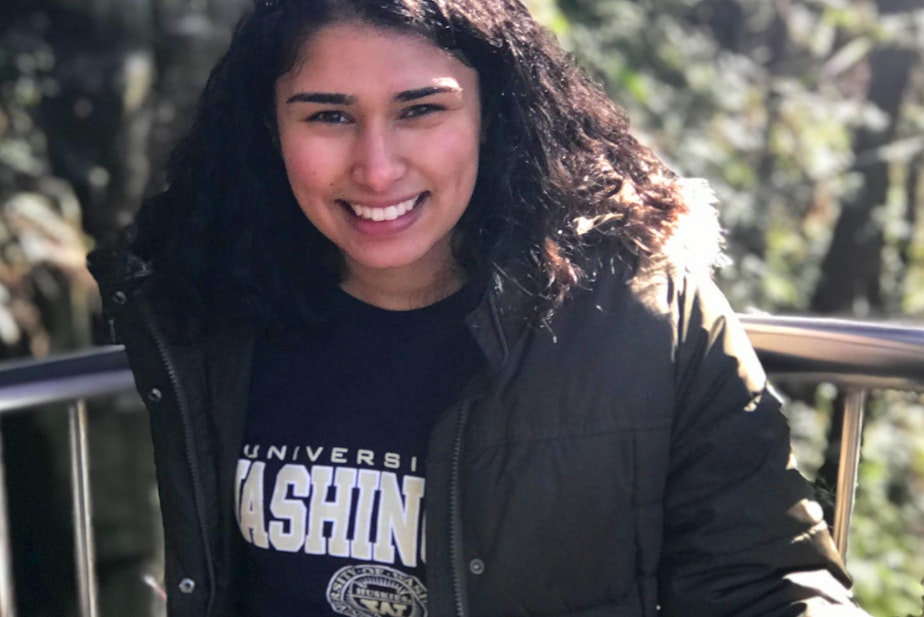‘College is a way to survive.’ Advice from a first-gen college student

Karishma Vahora is a senior at the University of Washington and the first person in her family to go to college. She is also my best friend's older sister.
I will apply to college in a few years, so I asked Karishma about her experience navigating the college admissions process, and the lessons she learned along the way.
Karishma has always been a role model to me. She is one of the few people who has inspired me to go after what I want in life. Most importantly, she has shown me that you can go to college regardless of your family’s makeup, immigration status, education level, or financial situation.
But when Karishma started school at the University of Washington, she noticed differences between herself and some of the other students.
“You had students in classes where they had these AP and IB courses in their [high] schools, and I didn’t have those courses,” Karishma says. “Their science classes were fully equipped with thousands of dollars, and their PTA fundings were in the millions. Evergreen [High School] did not have that.”
So how do first-generation college students compete?
Karishma says the extracurricular college prep programs that some high schools offer are helpful. But sometimes those programs have strict eligibility requirements, like a high GPA. Or they have mandatory meetings multiple times a week. So not all students can access them.
Sponsored
Karishma’s biggest piece of advice is to utilize the adults in your life. Even when it's not what your friends are doing.
“Your friends are doing one thing, and then you are staying after school to talk to your teacher and asking, ‘What programs should I be a part of?’ Or, ‘How do I get my grades up?’ Or, ‘Help me write a resume,'" Karishma says. "If you don’t have friends who are advocating or supporting you on your behalf, find adults in your life that can.”
Despite the extra challenges, Karishma has always been set on going to college. Education is important to her and her family.
Sponsored
“I grew up in an immigrant household, and a lot of our values are around education and being the best and trying to survive,” Karishma says. “And college is a way to survive.”
When I look at Karishma’s college experience, I see a success story. But not every first-generation college student has access to the resources they need to succeed. And sometimes, when I think about my own path to college, I worry I’m not good enough.
I produced this story to show myself, and other students like me, that it doesn’t matter what you do or don’t have. What matters is the effort you give and the passion you bring wherever you end up.
All audio for this story was collected following CDC safety guidelines during Covid-19.
Sponsored
This story was created in KUOW's RadioActive Online Radio Journalism Workshop for 15- to 18-year-olds, with production support from Lila Shroff. Edited by Kelsey Kupferer.
Find RadioActive on Facebook, Twitter, TikTok and Instagram, and on the RadioActive podcast.
Support for KUOW's RadioActive comes from the Bill & Melinda Gates Foundation Discovery Center.



